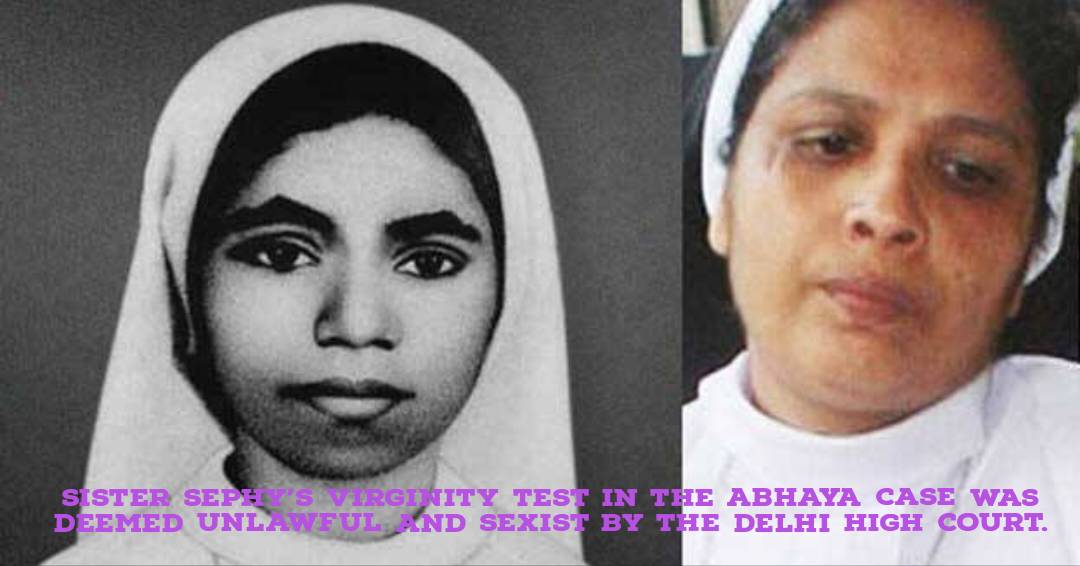
The Delhi High Court declared that the practise of performing a ‘virginity test’ on a female accused is unconstitutional, sexist, and violates her right to dignity in an effort to end the practise.
In addition, the court noted that there is no legal procedure that calls for a ‘virginity test.’
Justice Swarana Kanta Sharma made the ruling in response to a petition filed by Sister Sephy, who argued that it was unlawful for Sister Abhaya’s death in Kerala in 1992 to be the subject of a ‘virginity test’ on her.
Justice Sharma said that, ‘it is declared that the virginity test done on a female detainee, accused under investigation or in detention, whether judicial or police, is unlawful and violates Article 21 of the Constitution, which contains the right to dignity.’
As a result, the judge stated, ‘This court holds that this test is sexist and violates the human right to dignity even of a female accused if she is put to such a test while being in detention.’
The petitioner had claimed before the high court that the Central Bureau of Probe (CBI) had forced her to undergo a ‘virginity test’ in 2008 under the guise of the agency’s investigation to support its case, and that the findings had been leaked.
The court ruled that while it was not considering whether the test was required for the inquiry, administering it to the accused under the guise of discovering the truth violated her rights as guaranteed by Article 21.
The court ruled that performing a virginity test on the pretence of discovering the truth about the accusations made against her amounted to an infringement and violation of her Article 21 rights.
Furthermore, without a shadow of a doubt, the same is supported by gender bias and society’s concern with the fallacious idea that a woman’s purity is determined by her virginity. It goes without saying that it also equates to controlling women’s bodies, sexual behaviour, and the perception that a woman with the hymen is pure and innocent,’ the court added.
The judge also made it clear that the right to dignity in detention does not include the typical tensions and worries that a person could experience while in custody and being questioned.
Additionally, it stated that the National Human Rights Commission (NHRC) will review the petitioner’s request for compensation in accordance with the law in this matter and that she had legal options for retaliation against the CBI for allegedly leaking the test report to the media.
Regarding the petitioner’s argument for legal action against the CBI, the court noted that no declaration of its being unconstitutional, no matter how reprehensible it was, at the time of the test.
The petitioner and Father Thomas Kottoor were found guilty of killing Sister Abhaya in Kottayam in December 2020 and were given life sentences by a trial court in Kerala.
At the St. Pius convent in Kottayam, Sister Abhaya was found dead in a well in 1992. The Kerala High Court is currently hearing an appeal against the trial court’s ruling.

Post Your Comments